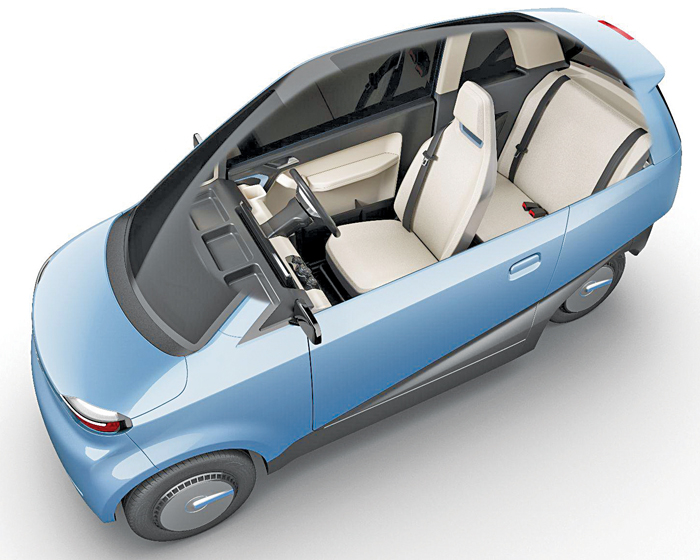
[ad_1]
While all electric vehicles (EVs) boast of reducing carbon emissions, Pune based Vayve Mobility has gone a step ahead with an electric four-wheeler partially powered by solar energy to suit urban sensibilities.
The electric mobility market in India has seen tremendous growth in the past five years due to increasing climate consciousness and reduced operational costs. While electric two-wheelers have found greater acceptance as the Indian consumer navigates through overly crowded roads, the absence of the comfort provided by a four-wheeler is very conspicuous.
To fill this void, Pune based startup Vayve Mobility has come up with an electric car with a solar photovoltaic roof designed to meet the needs of modern urban commuters. The compact two-seater car, called Eva, is designed with a focus on practicality and ease of use, to manoeuvre through traffic and park in tight spaces.
Incorporated in 2021, Vayve Mobility is the brainchild of Chief Executive Officer Nilesh Bajaj and Chief Technology Officer Saurabh Mehta, who started working on the project in 2019, along with Programme Manager Ankita Jain and Chief Operating Officer Vilas Deshpande. ìWe believe that although two-wheelers are convenient, they donít give you the safety and the comfort of a car. At the same time, a car need not be a five-seater, 500-kilometre range vehicle. We see this car as a completely new category between two-wheelers and four-wheelers of today, which is perfect for 90% of city commute,î says Bajaj.
The novelty of the car lies in the solar-panelled roof that provides an additional source of power, reducing the dependence on traditional electricity sources. Bajaj claims that the solar roof gives the car an extra range of 10 to 12 kilometres every day. With almost 300 solar days across the country, one can travel for at least 3,000 kilometres (more) using solar every year. Most people travel less than 10,000 kilometres a year. So, more than 30% of your travel can happen purely from solar, which is significant, says Bajaj.
With a range of more than 250 kilometres, which would require charging only once or twice a week, Eva can be fully charged in four hours using a 15A electrical socket at home. The car boasts of its ability to support CCS2 DC (combined charging system type 2 direct current) fast charging and can charge up to 80% in an hour.
WHERE IS THE REST OF THIS ARTICLE’S CONTENT?
[ad_2]






